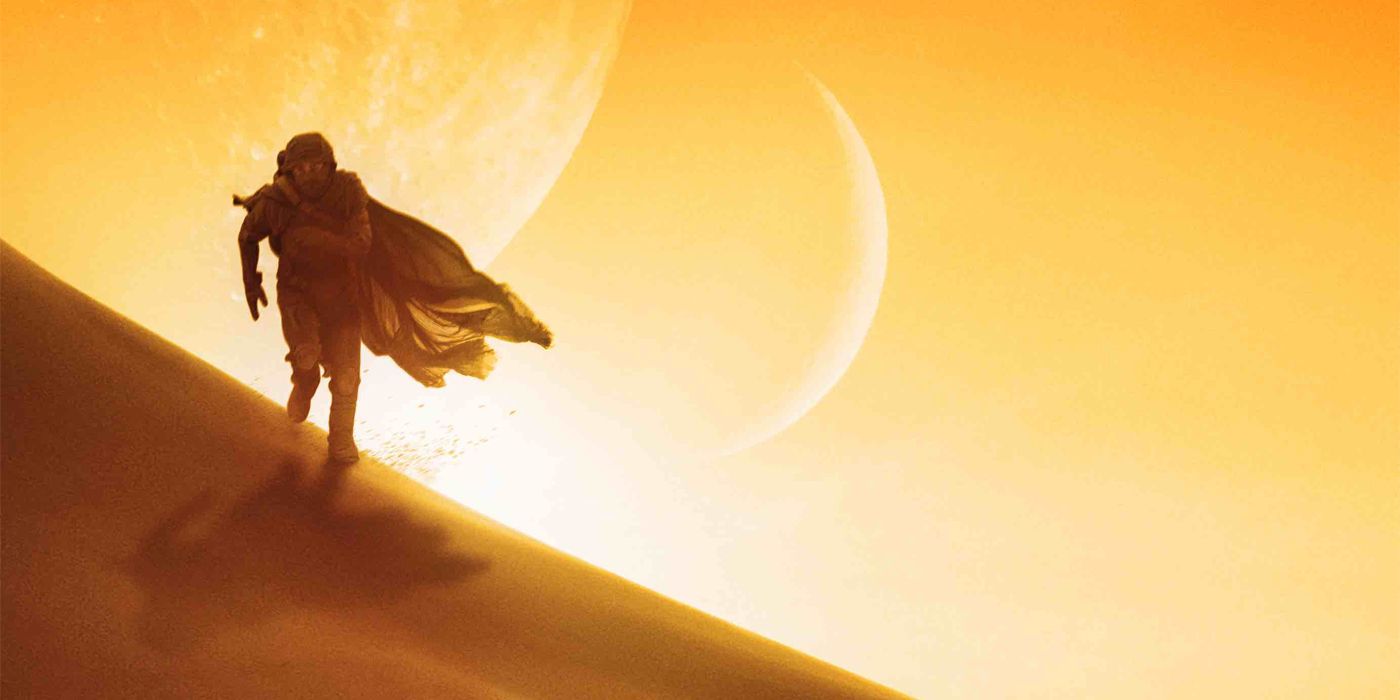Frank Herbert published Dune in 1965, and it literally changed the universe. It has been so impactful that not only is it the best-selling science fiction novel of all time, but there are features found on Titan, one of Saturn's moons, that are named after worlds that didn't exist until Herbert wrote them into being. The author penned five sequels in the following years, but his son and biographer Brian Herbert, along with novelist Kevin J. Anderson, have co-written 21 other novels and ten short stories surrounding this galactic empire, all expanding its mythos across thousands of years.
There have been several adaptations of Dune, but the most recent is a film by Denis Villeneuve. As American audiences prepare for its debut stateside, those uninitiated to the weirding way may wonder how much of that vast repository the new film covers and how much reading should be accomplished to appreciate its themes and characters.
What Is Dune About?
The Padishah Emperor Shaddam IV rules the known universe, arranged as a galactic Imperium, bound by three important aspects: the powerful noble houses that rule planets or sectors in a feudal arrangement, the Spacing Guild, which owns proprietary interstellar travel technologies and the spice, Melange, which grants the navigators of the guild the cognitive capacity integral to operate those technologies. The spice not only sharpens mental acuity but also exponentially lengthens lifespans and, under the right training and conditions, can grant an array of psychic abilities. It can only be found on the desert planet Arrakis, colloquially referred to as Dune.
Shaddam is threatened by the popularity of one of his nobles, Duke Leto Atreides, head of House Atreides and ruler of the water world Caladan. The Emperor transferred sovereignty of Arrakis to Duke Leto, which on its surface would make him even more powerful and greatly diminish the standing of House Harkonnen, who has been feuding militarily with the Atreides for centuries and are in charge of spice mining operations on Arrakis. The charter is a ploy by the Emperor to destroy House Atreides with no suspicion cast his way, using the Harkonnen animus, along with his own disguised elite troopers, as the means of their annihilation.
Duke Leto's son, Paul Atreides, survives the massacre along with his mother, Lady Jessica. She has been trained in the ways of the Bene Gesserit, a politically powerful sisterhood that discovered ways to harness the spice to grant them precognitive and martial prowess. Lady Jessica has trained Paul in these secrets, or the weirding way, since birth. The two of them are taken in by the Arrakeen natives, who eventually come to regard Paul as a messianic figure foretold in their belief system. After training with the Fremen for years and teaching them aspects of the weirding way, Paul defeats the Emperor and House Harkonnen and ascends to the Golden Throne.
Which Dune Book Is the Film Based On?
HBO's plan from the beginning has always been that the new movie would cover the events of the first half of the original Dune novel with a tenuous commitment to filming the second half in a second film. Villeneuve has stated that while nothing has been guaranteed, it would take a ruinous box office tally to prevent the second half from proceeding as planned. Though there are mountains of material to traverse in this realm of seers and madmen, only the first book is absolutely essential to read, and even then, some adaptations in the past have proven to be approachable to spice novices as well as Dune heretics.
However, some works of fiction and non-fiction that influenced Frank Herbert may be worth sampling for their thematic contribution to some of the layered socio-political and spiritual facets of his work, including Le Morte d'Arthur by Thomas Malory, Silent Spring by Rachel Carson, Edward Gibbon's Decline and Fall of the Roman Empire and The Way of Zen by Alan Watts. It has also been remarked that Dune is in some ways a reactionary tale set against Isaac Asimov's Foundation, which asks many of the same questions but arrives at a very different set of conclusions.
Dune debuts in theaters, as well as for a limited time on HBO Max, Oct. 22.



